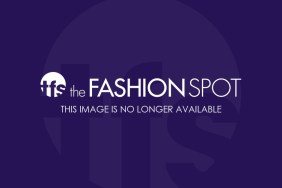When Leslie Jones took to social media to berate designers for not wanting to dress her for her upcoming Ghostbusters premiere, the actress sparked a chain of events that highlight the extent to which even plus-size celebrities are excluded from the fashion world.
It’s so funny how there are no designers wanting to help me with a premiere dress for movie. Hmmm that will change and I remember everything
— Leslie Jones (@Lesdoggg) June 28, 2016
Stylist Jessica Paster went so far as to blame Jones for her own lack of foresight, implying the actress should be aware of — and cater to — the fashion industry’s discriminatory practices. “She should have known four to five months ago the date of premiere, and said, ‘I’m not a sample size, I need to go to designers early or buy myself a dress.’ Don’t be blaming designers and saying they don’t like you,” Paster told Pret-a-Reporter.
Jeanne Yang, another stylist, added, “It’s just pure economics. People have this belief that showrooms and designers have racks and racks of clothing in all sizes. They don’t.”
Regardless, it’s evident that any number of high fashion designers could have used their considerable resources to make Jones a dress. After all, one-time theFashionSpot guest editor Christian Siriano (shameless plug), a respected designer with many a plus-size collection under his belt, stepped forward and somehow managed the feat despite the time crunch.
Further restoring our faith in humanity is 19-year-old curvy model Barbie Ferreira, who took to Twitter to show her support for Jones and remind her 75,000 followers just how far the industry has yet to go when it comes to inclusion.
Ferreira, who has posed for Aerie, ASOS, i-D Magazine and more, issued the following string of tweets:
Fashions discontent for curvy women is this crazy they won’t make a dress not in sample size for a premiere .. Wow https://t.co/wwhN0kgzNK
— barbie (@boredbarbara) June 29, 2016
Bruh finding designer dresses for events when ur not a size 0,2, MAYBE 8 is impossible . Why is this ? There are curvy FAMOUS ACTRESSES/PPL
— barbie (@boredbarbara) June 29, 2016
Every day I’m reminded of my body . Even if I’m excited about an event finding someone who even wants to help me by styling is impossible
— barbie (@boredbarbara) June 29, 2016
Curvy women are not allowed to be edgy not allowed to be stylish or allowed to explore their looks like everyone else in this industry .
— barbie (@boredbarbara) June 29, 2016
So don’t expect much from my designer Looks in the future until people wake tf up
— barbie (@boredbarbara) June 29, 2016
And hearing an actress in a huge film having similar struggles .. Girl I feel hopeless . Am I gonna have to wear Sears when I win my Oscar ?
— barbie (@boredbarbara) June 29, 2016
It’s cool tho. We are so creative since clothes r not easily accessible . Wearing men’s clothes thrifting finding pieces 2 play up its lit
— barbie (@boredbarbara) June 29, 2016
Although the movement towards body positivity is going strong, the issue remains that many high-end designers do not concern themselves with dressing curvy women, leaving them frustrated with an industry that systematically excludes them.

Image: Instagram
“Fatphobia in the fashion industry is a brilliant actress in a huge film having stylists refusing to work for her to find a dress,” Ferreira wrote in a now-deleted Instagram post accompanying the tweet storm. “I’ve had this happen to me and I hoped it would be just because of the timing or my lack of experience, but seeing this hurts my heart.”
“We do not always need to cover as much skin as you think we do,” she concluded. “We should be allowed to dress as chic and risqué as any other body type. And to expect people in a business that isn’t even about their bodies necessarily to fit into one mold … Sad. Do better, fashion.”
Based on an even more recent string of tweets, Ferreira removed the Instagram post amidst criticism that she’d failed to mention how racism and ageism likely contribute to Jones’ struggle. The comedian is not only plus-size, but a black, 48-year-old actress in the predominately white, youth-obsessed entertainment industry.
“I am not in a place to speak on behalf of black women on racism. I will support/RT/publicize their views but will not take credit for it. Literally the first thing I thought of was the struggles of women who are atypical in this world. I’m not ignoring the racism,” Barbie clarified via Twitter. “I’m sorry for not mentioning her race, I know it’s important. I didn’t mean to alienate that reason just shed light on body negativity.” Why she deleted the post rather than simply adding to it we cannot fathom; her astute observations deserve to be heard.
[ via Mic ]




